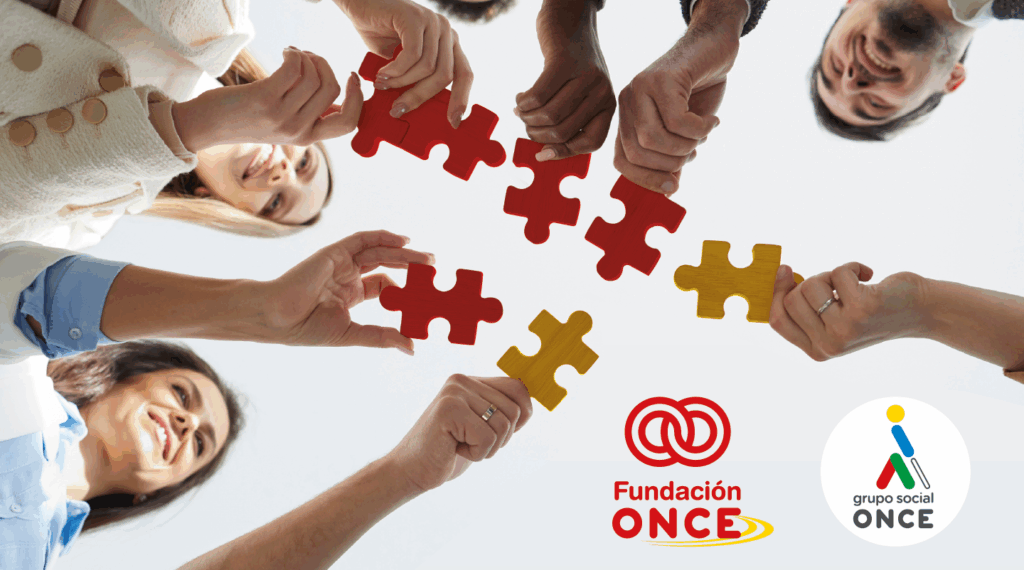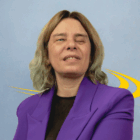No equality without inclusion: A personal call to European philanthropy

Beyond an invitation to the dance
Philanthropy has rightly confronted racial, gender and economic injustice, yet disability too often remains an asterisk. As a woman with a disability, I understand how barriers multiply at the intersections of identity. Equality without disability is partial; inclusion without accessibility is impossible. Accessibility is not a courtesy but the floor on which equal participation stands. When an event guarantees sign‑language, step‑free routes and braille programmes, it broadcasts that every perspective matters.
Sadly, accessibility is still a global challenge. Many foundations still treat accessibility as a cost centre rather than a value driver too. We budget for glossy reports that trumpet inclusion yet publish PDFs unusable by screen‑readers. We launch vibrant social‑media campaigns yet forget alt‑text. My plea is simple: if our sector cannot meet basic accessibility standards, how can we credibly demand justice from others? Philea’s commitment to continuing to advance accessibility and inclusion must be a shared commitment, a challenge we must work towards together to be an exemplary sector, like good leaders.
A demographic and humanitarian imperative
Three converging trends make disability inclusion urgent – indeed unavoidable.
1. Europe is ageing. Eurostat projects that by 2100 almost one European in three will be 65 + (up from 21.6 % in 2024), and around 65 % of older adults already report activity limitations. Age is a prolific creator of disability; tomorrow’s beneficiaries are today’s donors, trustees and neighbours.
2. Conflict is brutally productive of disability. Russia’s invasion of Ukraine has produced 300,000 new disabilities, while 1.8 million disabled Ukrainians need humanitarian aid and 3.9 million battle severe war‑related mental‑health conditions.
3. Climate instability multiplies risk. Wildfires, floods and displacement sever access to medicines, assistive devices and care, creating fresh disabilities each season and deepening existing ones.
Combine those forces and a stark truth emerges: disability is not marginal. Any programme tackling climate, peace or healthy ageing that ignores disability slams the door on millions of the very people it claims to empower.
Philanthropy’s duty to lead by example
Next year marks twenty years of the UN Convention on the Rights of Persons with Disabilities, yet daily life remains riddled with barricades. Philanthropy enjoys freedoms to innovate, experiment and convene that states and markets sometimes lack; we must use that privilege to model the world we champion.
At Fundación ONCE, part of Spain’s ONCE Social Group, inclusion is wired into our DNA. We are Europe’s largest employer of people with disabilities, with 75,000 staff members – more than half disabled. Diversity here is no burden; it powers creativity, loyalty and resilience. And yes, it is profitable. Every foundation can harness the same strengths – if only it opens its doors.
Philea’s Disability Thematic Network is also an example of how collaboration between foundations can and should be a transformative lever to put the most vulnerable groups, in this case people with disabilities, on the agenda and as key players in the foundation sector. I would like to take this opportunity to thank its members and each and every one of the foundations and individuals who collaborate to achieve this goal.
Four commitments for an inclusive sector
- Bake inclusion into strategy. Start planning with universal‑design principles, disability data and co‑creation. Retro‑fitting is always costlier – in euros and credibility – than designing access from day one.
- Practise what we preach. Recruit, mentor and promote disabled professionals into boards and C‑suites. Visibility triggers accountability, and accountability drives culture change.
- Partner with disabled‑led organisations. “Nothing about us without us” is more than a slogan; it is a proven accelerator of legitimacy and effectiveness.
- Measure and publish progress. Track accessibility budgets, representation ratios and grant flows – then share the numbers in annual reports. Transparency breeds the gentle pressure that transforms behaviour.
These commitments are not burdensome extras; they are smart risk management. An accessible website reaches more users, a diverse staff anticipates wider needs, and a foundation that models inclusion is a stronger advocate in parliamentary corridors.
Defending Europe’s social model
The EU’s social dimension is not decorative; it is constitutional. Commitments to equality and accessibility are written into the Treaties and form the soul of the European project. Amid populism and polarisation, defending that pillar – including the rights of persons with disabilities – is how we defend Europe itself.
We often proclaim that “no one should be left behind.” Let us ensure that people with disabilities are not simply included in that promise but placed at its very heart. Otherwise, our rhetoric is hollow and our covenant with citizens broken. When foundations place disabled people in leadership, the message reverberates far beyond boardrooms: Europe means everyone.
An invitation and a challenge
True change starts within. Audit your payrolls, leadership charts and grant portfolios. Do they reflect the diversity you celebrate on conference stages? If not, the remedy lies close at hand: open every door, invite every talent, and let everyone dance. Begin by allocating a percentage of each programme budget to accessibility; set concrete hiring targets; publish annual dashboards. Small, measurable steps accumulate into systemic shifts.
And remember: inclusion is contagious. When one foundation installs tactile signage, neighbouring institutions copy the idea. When a funder demands accessible proposals, grantees scramble – but then adopt new habits. We in philanthropy are networked by nature; use that network to spread access like wildfire.
The challenges ahead – climate shocks, AI disruption, demographic transition – are formidable, but so is our collective capacity when we mobilise the brilliance of all Europeans. Disability inclusion is not charity; it is nation‑building, market‑shaping, democracy‑strengthening work. Ignore the prophets of scarcity who claim inclusion is too expensive. The real cost is exclusion: wasted talent, lost innovation, fraying trust.
I left Lisbon energised by new alliances and hopeful that the next time I ask my blunt question, a proud forest of hands will rise. Inclusion is the ultimate test of our shared values. Let us pass that test – together – and craft a Europe where every citizen, regardless of ability, can shape our common future.
Authors

